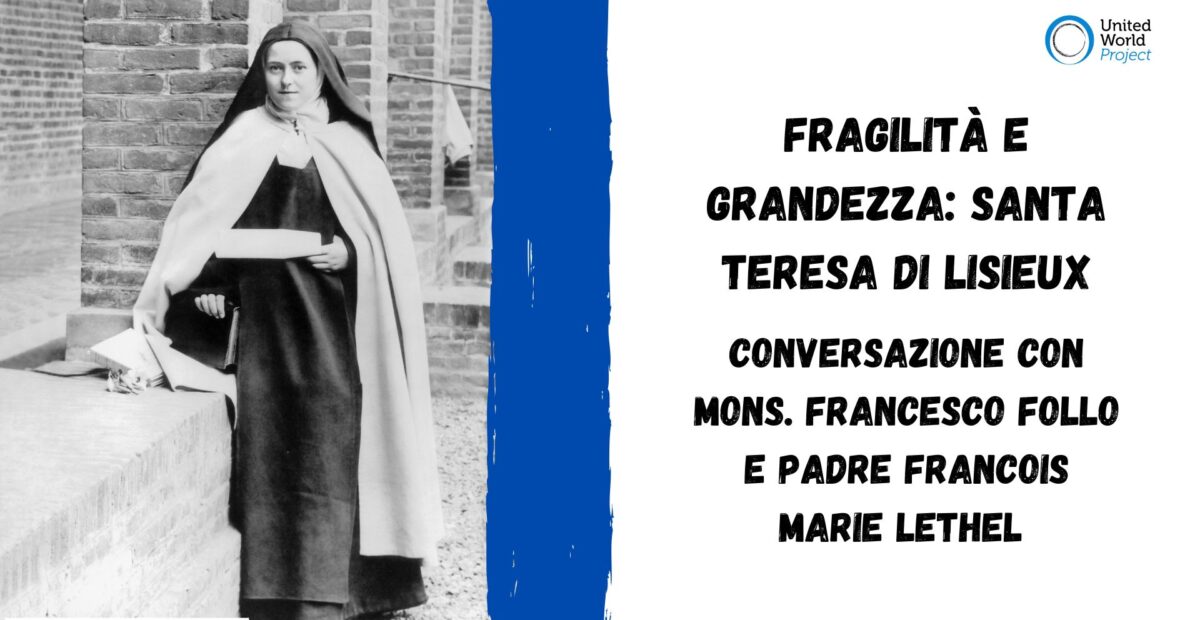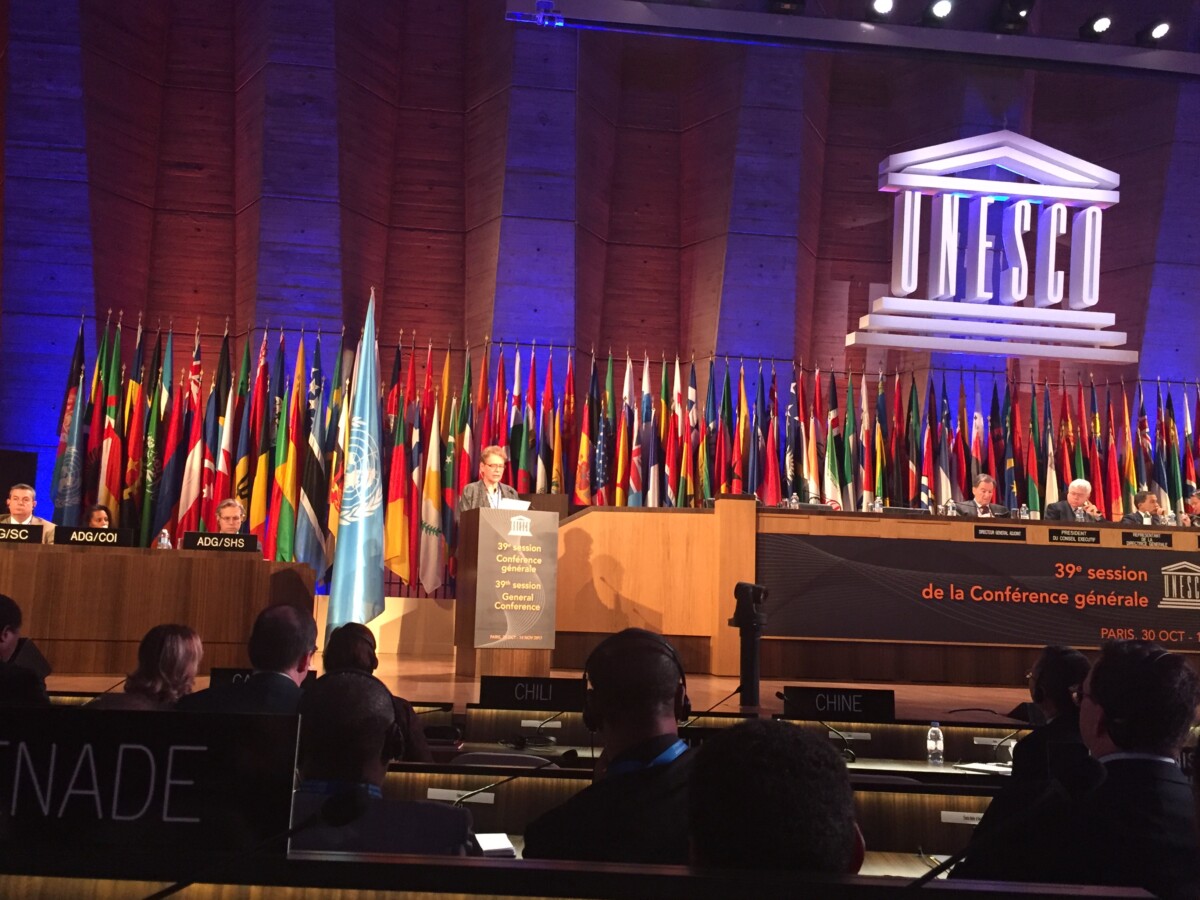
Watch
Fragility and greatness: Saint Thérèse of Lisieux

A conversation, profound and enlightening, with Monsignor Follo and Fr Francois Marie Lethel on the importance and modernity of the French saint, celebrated by UNESCO in 2022-2023.
It is a hundred years since the beatification of Therese of Lisieux by Pope Pius XI on 29 April 1923; two years later, she was canonised, this young carmelite nun, who died of tuberculosis at the age of 24. No one noticed her, to the point that she was asked to write down something about herself, as no one would have anything to say at her funeral.
Today, her message lives on loud and clear and relevant. For this reason, UNESCO has officially named her as one of the personalities to be celebrated during 2022-2023; as a woman, she represents values to be promoted, for her intellect, her search for meaning, and as an educator and writer.
In order to know her better, we met with Monsignor Francesco Follo, permanent Observer of the Holy See to Unesco up until 2022, and Father Francois Marie Lethel, a Carmelite theologian, responsible amongst other things, for his collaboration in putting forward the Positio of Therese as Doctor of the Church in 1999.
We asked them both to begin by telling us who was Therese of Lisieux
Follo: It was towards the end of the 1800’s, in a small convent, in a village in Normandy. A poor region. Therese wrote three manuscripts, published posthumously as a book. Eight months later, that text, entitled ‘Journey of a Soul’, boasted 2,000 copies and today is translated into 60 languages.
Lethel: this young girl, led her life within the anonymous walls of the convent; no more than ten people attended her funeral. If she had not written anything down, she would have left nothing. It was her sister, Mother Superior, who asked to write down her childhood memories.
Can you tell us about these writings?
Lethel: They are very simple, childlike almost, but with extraordinary evangelical content. They contain a very strong message of faith and love, expressed in a language that is accessible to everyone.
Follo: they point to a Way. Therese calls it ‘the little way’, because it is simple, filial. Even those who are illiterate can follow it.
Where does this Way lead to?
Lethel: two words recurr frequently: love and Jesus. When she writes “my vocation is to love”, she is saying something universal. Every human heart possesses this desire. She immerses herself in the simplicity of the small things of everyday. Great love in the smallest things. Therese allows herself to value every detail of life, to rediscover God as someone close, who forgives and saves.
What is the relationship between fragility and sanctity in Therese of Lisieux?
Lethal: Therese teaches us to accept our fragility not as something negative. If we see it in Christ Jesus, it becomes the fertile soil of our sanctity. A fragility that welcomes the presence of the Lord, becomes strong. She writes: “It is not I who become a saint, it is He who makes me a saint”.
Follo: we need to blow away a little of the devotional dust that settles upon Therese. Not reduce her to sentimentality. During the dark night of her faith, she went beyond the bounds of every emotion. She loved. Love as they’re the gift of herself and letting herself be loved. A person cannot lean upon their own strength but upon the merciful love of Jesus.
What was this dark night of faith?
Lethel: during the last year and a half of her life, Therese lived a terrible dark night of faith. She recounts it in the third manuscript of her “Journey of a Soul”. She writes: “Jesus has permitted my soul to be invaded by the darkest shadows”. Alongside the voice of faith, we hear that of the shadows of nihilism. But they do not destroy her, nor make her lose faith. On the contrary, she welcomes them as a great grace.
Is this part of her modernity too?
Lethel: It is one of the most important aspects of her modernity. Saint Pius X declared that Therese of Lisieux would be the greatest saint of modern times. She lived in the 1800’s, when atheism was taking shape in a philosophical system. Namely Marxism.
And Nietzsche…
Follo: Therese has her response to Nietzsche’s “God is dead”. For her, God exists and everyone can meet Him, without having studied philosophy or theology.
Let’s go back then to her simplicity…
Follo: we need to be people who ask questions. A saint is an ordinary person, who loves Christ and lets themselves be loved. Therese is a great example, and this is relevant because she did not do anything exceptional. Hers is the dust of daily living, transformed into the seeds and diamonds of history. She teaches us that in order to love, we need to be loved.
An idea of sanctity accessible to everyone…
Lethel: I believe that Therese has revolutionised the idea of sanctity. She recounts what the Lord has done in her. She tells us that we cannot be saved on our own. She has a communitarian vision of sanctity. She does not experience a mystical phenomenon; she meets God in the ordinary things of everyday.
Can you tell us about the relationship of Pope Francis towards Saint Therese of Lisieux?
Lethel: Pope Francis has a great love for Therese of Lisieux. One of his most beautiful books is the Apostolic Exhortations “Gaudete e Exultate”, on the call to holiness in today’s world. He quotes her often.
And the recognition given to her by UNESCO …
Lethel: Therese of Lisieux speaks to those beyond the frontiers of the Church. Her recognition by UNESCO is very significant because she is not only of interest to Christians. It is a mistake to confine her to the Christian world. Therese’s writings are not polemical against anyone; they touch the very essence of the human heart.




